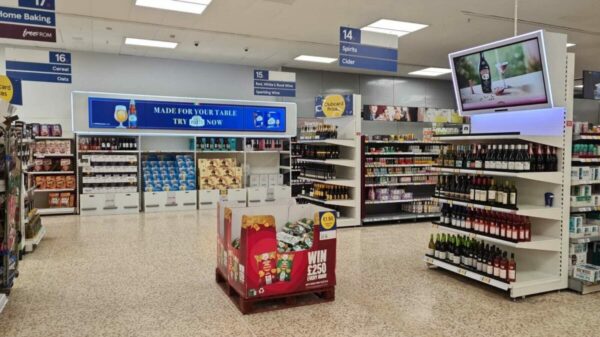Tesco and Sainsbury’s have been accused of deceiving consumers with ‘dodgy’ loyalty offers, giving consumers the impression that the promotional savings are better than they actually are.
Consumer group Which? launched an investigation tracking the pricing history of a dozen member-only offers at both supermarkets over six months, and found that 29% of the promotions were at their so-called ‘regular’ price less than half the time.
The figures revealed for Tesco’s Clubcard, this was 24% of the 70 products, while for Sainsbury’s Nectar Card, it was 34% of 71 products, showing that customers are often not saving money – with the report also shining a light on the profit supermarkets are making from consumers’ data.
The investigation specifically uncovered a string of ‘particularly dubious deals’, such as branded products like Andrex Classic Clean at Sainsbury’s – having a Nectar price of £5.25 and a regular price of £6.25.
However, its ‘regular’ price was £6.25 for less than three weeks before the Nectar offer started, but before that, it was £5.75.

Subscribe to Marketing Beat for free
Sign up here to get the latest agency-related news sent straight to your inbox each morning
Similar dubious examples can be found in Tesco with items such as Heinz Salad Cream, which has a Clubcard price of £3.50 and a regular price £3.90.
Yet its regular price had been £2.99 at Tesco for several weeks, before it was increased to £3.90 just 22 days before the loyalty card promotion. Which? pointed out it had only been at its ‘regular price’ for 14% of the previous six months.
In addition, the consumer group found that the ‘regular’ Sainsbury’s price was higher than at other supermarkets – the same jar was £7, while at Morrisons, Ocado and Waitrose it was £6, £5.99 at Tesco and £5.49 at Lidl.
The consumers group’s investigation calls into question the worth of supermarket loyalty schemes to consumers, and whether these ‘savings’ – that 20% of consumers who noticed a members-only pricing scheme said would make them shop more frequently – are as impressive as they sound.
Which?’s findings, due to be forwarded to the Competition and Markets Authority for further investigations, also questioned the comparative worth of the loyalty-scheme to supermarkets.
For example Sainsbury’s data arm Nectar360 is predicted to make £90m profit by early 2026, from selling consumer data. Meanwhile, Tesco’s Dunnhumby group chief executive Ken Murphy described its data as giving the supermarket ‘‘access new revenue streams from Clubcard”.
“You wouldn’t just hand over your receipt to someone in the street to show them what you’ve been buying. But that’s what you’re doing,” said Solent University lecturer and data specialist Garfield Benjamin.
“There is potentially sensitive data there – pharmacy, sexual health products. You don’t realise how many of our habits are in our shop. They know where you work, when you go to the office, when your kids are ill.”
Questioning whether non-member pricing was so high it forces consumers into membership, Benjamin added: “The change towards member-only pricing really means people are likely to feel they have less choice about signing up.”









